The dwarf among the little ones: Apistogrammoides pucallpaensis from the upper Amazon in Colombia and the Rio Ucayali in Peru is one of the smallest cichlid species of all. We obtain our animals from Peru. In the literature, the maximum sizes given are 5 cm for males and 4 cm for females. However, these must have been very old aquarium specimens. Wild-caught specimens are already sexually mature at 3 cm (males) and around 2 cm (females). We measured the wild-caught specimens photographed for this post. The male is 3.5 cm long, the female 2.5 cm. All sizes given here are total lengths, i.e. including the caudal fin.
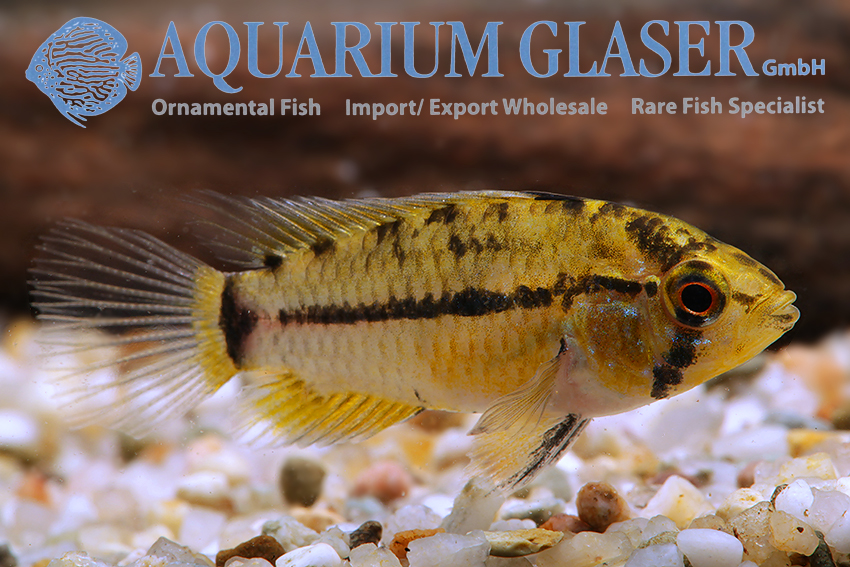
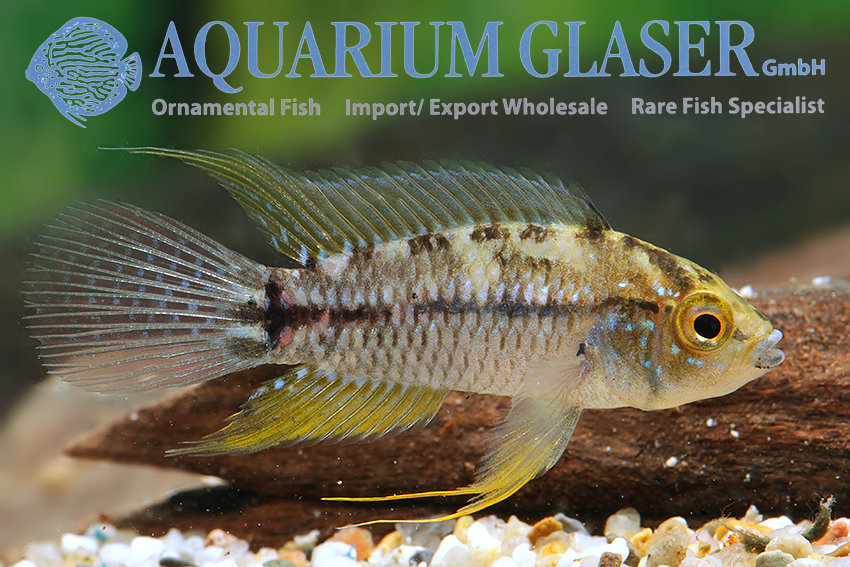
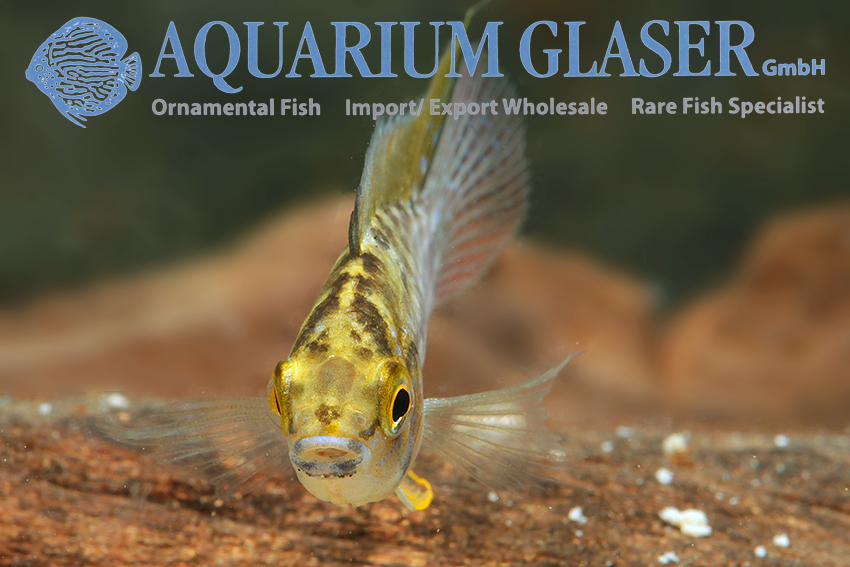
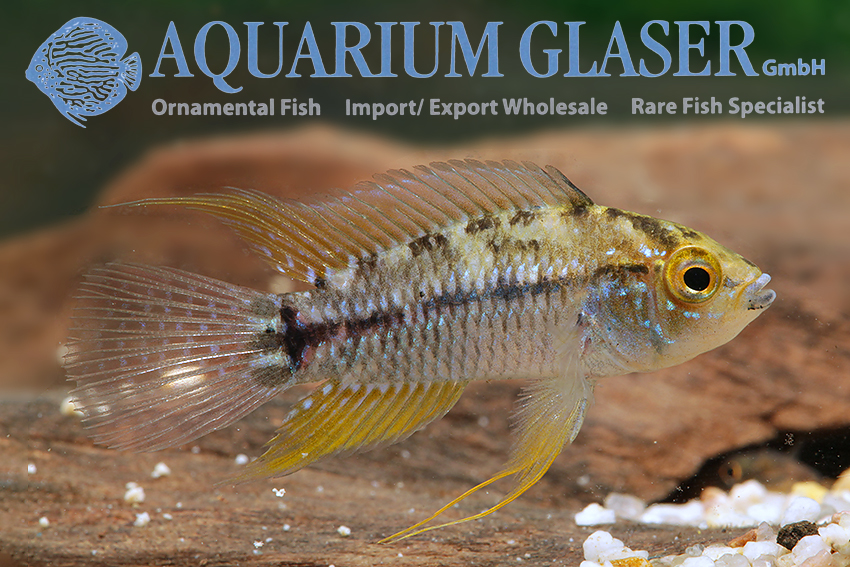
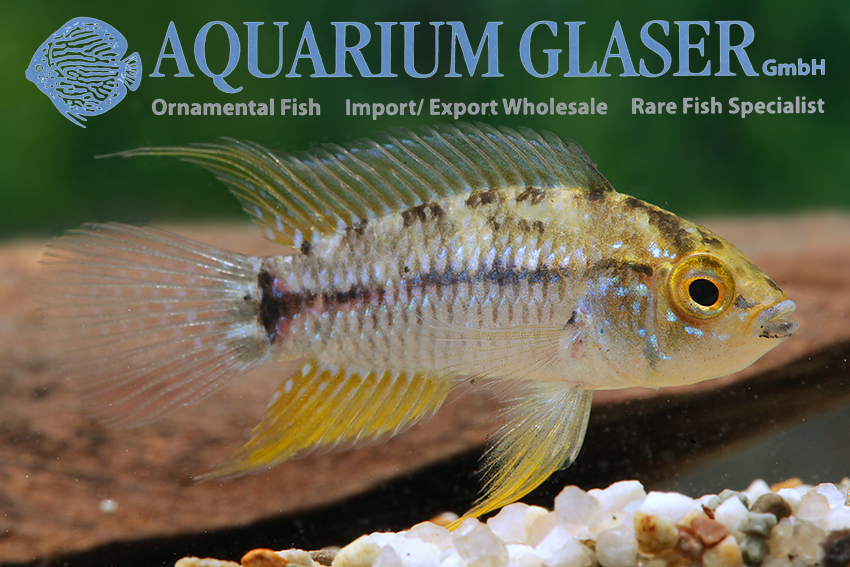
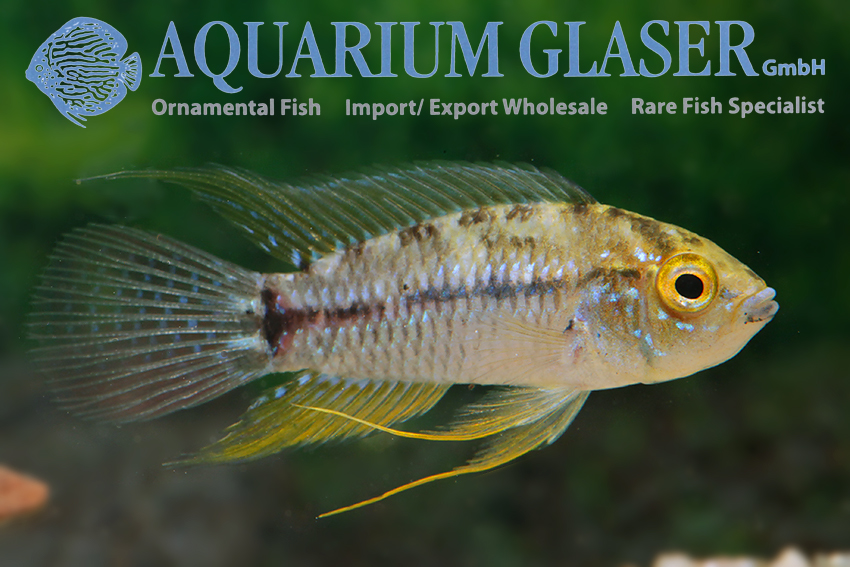
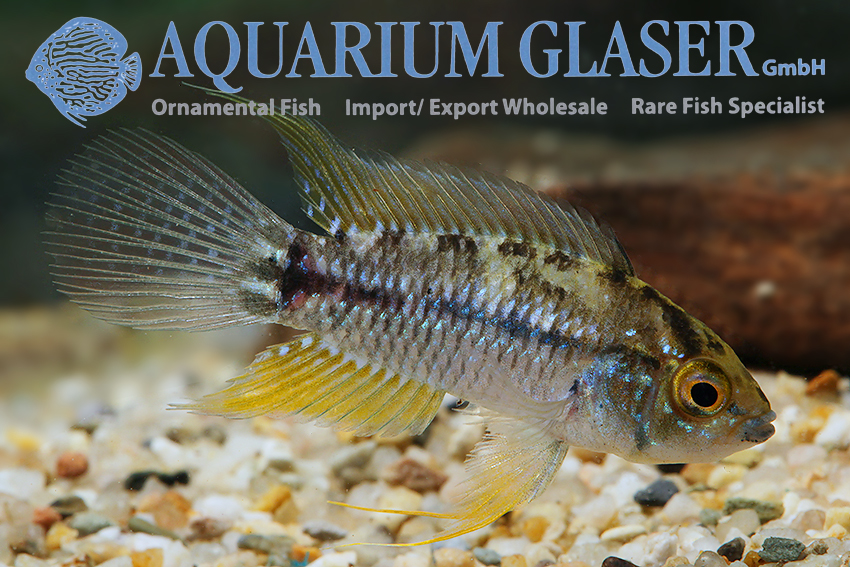
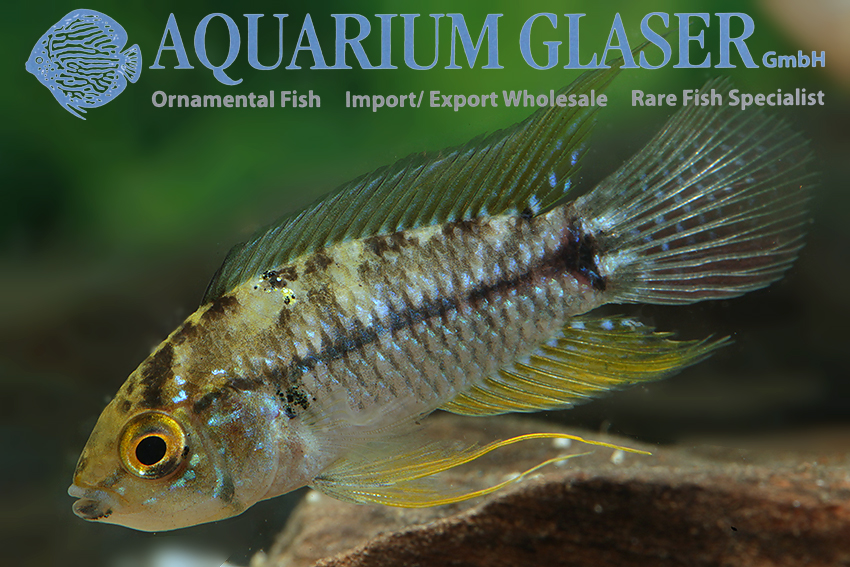
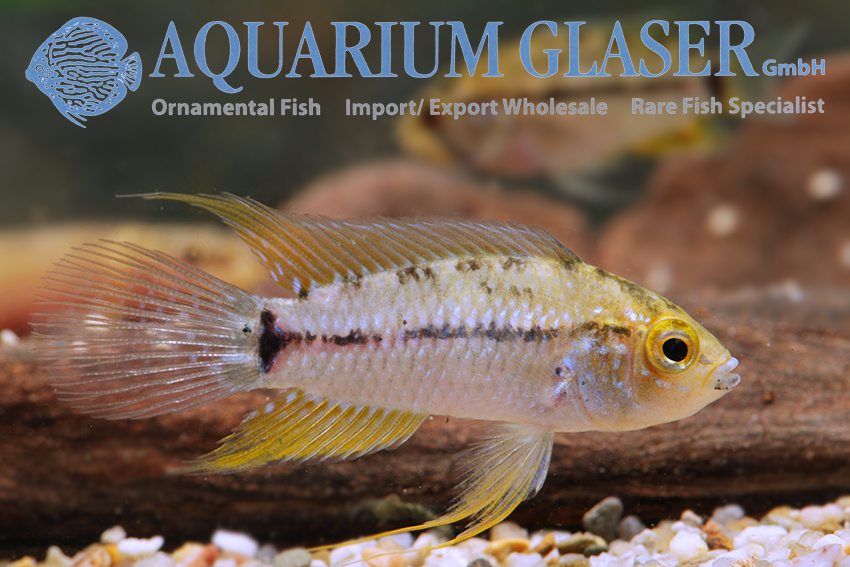
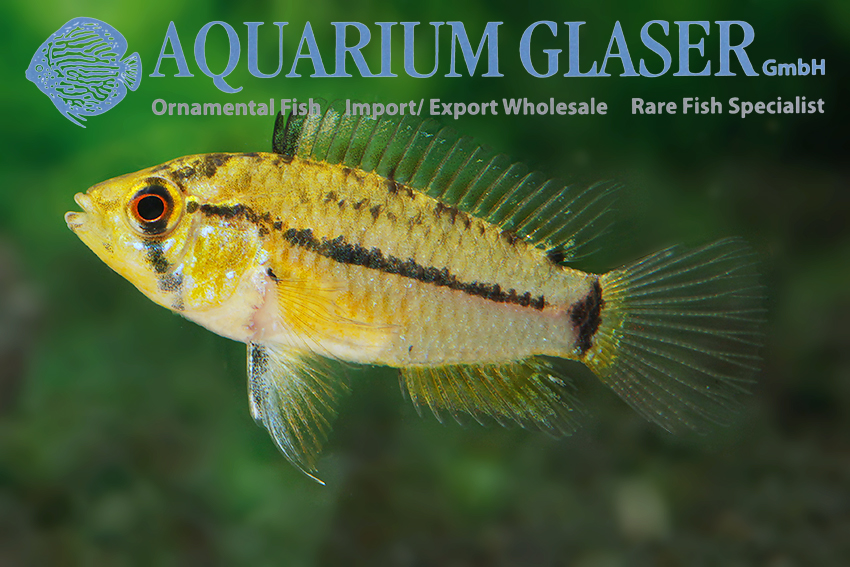
Juvenile males and females are very similar; the males can be recognized by a kind of honeycomb pattern with bluish spots in the caudal fin. There is hardly any doubt about fully adult animals (see photos).
Wild-caught specimens of this species very often have more or less pronounced black pigment accumulations. This is completely harmless and comparable to freckles in humans. As these pigment accumulations (“black spots”) are not inherited and only occur in wild-caught specimens, it is very likely that these are skin reactions to parasite infections that have been overcome. In any case, specimens with black spots differ neither in their vitality nor in their life expectancy from animals without these black spots.
The genus Apistogrammoides differs from Apistogramma mainly in the high number of spiny rays in the anal fin. In terms of behavior, A. pucallpaensis differ from Apistogramma in that these animals love to stay in dense floating plant cover. The water values for breeding this species are in the pH range of 6-7 in soft water. They therefore do not tolerate strongly acidic black water, as is necessary for many Apistogramma. In the wild, water temperatures are usually in the 21-27°C range. Reproductive behavior is similar to that of Apistogramma, i.e. cave breeders with a mother family. Only when the young are swimming freely may the male take part in caring for the brood.
For our customers. The animals have code 626712 on our stocklist. Please note that we only supply the wholesale trade.
Text & photos: Frank Schäfer




